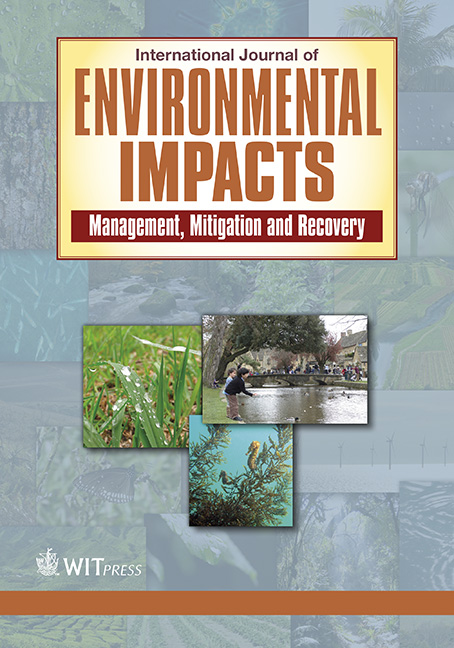Recovery assessment: the process needed after impacts have exceeded sustainability limits
Price
Free (open access)
Volume
Volume 3 (2020), Issue 3
Pages
11
Page Range
272 - 283
Paper DOI
10.2495/EI-V3-N3-272-283
Copyright
WIT Press
Author(s)
Bryan Jenkins
Abstract
Recovery assessment is the process needed after impacts of development exceed sustainability limits. This contrasts with impact assessment whose purpose is to avoid, minimise or mitigate adverse effects of development. Despite decades of impact assessments, state-of-environment reports indicate deteriorating environmental quality. one solution emerging to reverse this trend is “recovery assessment” – the process of developing management interventions to address environmental damage and degradation. The paper places impact assessment and recovery assessment in the context of managing socio-ecological systems based on four phases of the adaptive cycle: exploitation (use of resources), accumulation (build-up of effects of resource use), disturbance/release (when effects exceed sustainability limits), and reorganisation (restructuring of the system after disturbance). Restructuring leads to either a degraded system (i.e. unsustainable) or recovery of the system (i.e. sustainable). impact assessment addresses the exploitation and accumulation phases to keep development within sustainability limits, while recovery assessment addresses the reorganisation phase after sustainability limits are exceeded. Four case studies are presented to illustrate the recovery assessment concept and new environmental management techniques associated with the concept. The first is the Exxon Valdez oil spill. interventions to address spill damage and natural recovery processes have been extensively monitored. the technique of “net- environmental-benefit” evolved from this work. The second is the Fundão tailings-dam failure. Restoration investigations used the technique of “equivalency-analysis”. The third is the Great barrier reef which is degrading not only because of impacts of cyclone damage, land-based contamination and rise in sea-temperature, but also because reef ecosystem recovery processes have been compromised. Enhanced natural recovery techniques are being developed to address ecological deterioration. the fourth is fire management at uluru. The European approach of fire suppression reduced fire frequency but led to major fires causing ecological and development damage. Indigenous fire management techniques have led to ecological recovery and reduced damage.
Keywords
Recovery assessment, Sustainability limits, Oil spill recovery, Tailings dam failure, Reef ecosystem recovery, Fire management, Adaptive cycle, Managing socioecological systems




